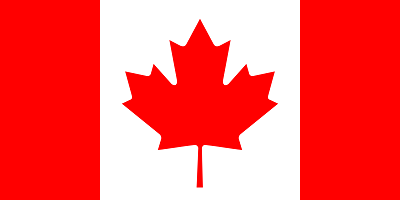
I’m at my cottage in Canada, where I’ve come every summer since I was 7 months old except for 5 interspersed years in the 1970s, 1980s, and early 1990s, when other things were going on in my life. It’s Canada Day here. When I grew up in Canada, it was called Dominion Day.
Because I’m in Canada, it occurred to me to quote one of my favorite passages from a book on Canadian politics in which the lesson of opportunity cost rears its ugly head. Here goes:
One winter afternoon in late 1975, Joe Clark came to see me in the Toronto offices of the Financial Post. This was even before he became Joe Who. He was running for the leadership of the Progressive Conservative Party, but almost no one had noticed. Earlier that fall Clark had broken a previous appointment with me, pleading insufficient time to consult his economic advisors. Economics is a stigma you have to accept when you write for the Financial Post. Somewhat reluctantly, I began our rescheduled interview by asking him what he thought about the Economic Council of Canada’s just-published report Looking Outward, which had recommended continental free trade and had therefore been widely denounced as advocating Canada’s absorption into the U.S.A.
Clark immediately fell apart. Frankly, he said, he didn’t know anything about economics–still–and his exhausting schedule wasn’t helping. You see, he added, “when I went into politics I had to choose between learning economics and learning French. And I chose French. ”
Italics added.
Needless to say, I was completely disarmed. Still considering how I could possibly write up the incident without humiliating such a nice and obviously harmless man, I went off to the Middle East to do a Financial Post Special Report on the effects of the oil boom. The report won the Royal Bank/Toronto Press Club Award. Joe Clark won the Tory leadership.
Several morals can be extracted from this tale. One is the subtle, but in my opinion profoundly debilitating, cost of the French connection to English Canadian politics. Another is just how inexperienced Joe Clark was when he became Tory leader at the age of thirty-six. For a practicing politician to know nothing about what has historically been the central economic question facing his country may be less than surprising, although mildly ironic in Clark’s case because of the starring role he has recently been playing as External Affairs Minister in the Mulroney government’s effort to reach a free trade agreement with the U.S. But to be unable to talk his way around such a question is a shocking breach of professional standards.
This is from Peter Brimelow, The Patriot Game: Canada and the Canadian Question Revisited, Hoover Institution Press, 1986. I reviewed the book in Fortune. See “Why is Resource-Rich Canada Poor?“, Fortune, November 23, 1987.
Notice, by the way, if you have followed Canada, how much better Canada is doing economically than either Brimelow or I had thought it would, even without the separation of Quebec from Canada (Quexit?) that we both had wished for. It also came from the most unlikely party: the Liberal Party under Jean Chretien, who was mentored by Pierre Trudeau, the person most responsible for Canada’s burst of government spending in the 1970s. I write about the large drop in Canada’s federal government spending as a percent of GDP in this Mercatus study, Canada’s Budget Triumph.

READER COMMENTS
John Thacker
Jul 1 2016 at 7:50am
I suspect that the Canada-US Free Trade Agreement (alluded to in the argument) made somewhat of a difference as well. That too was passed by a somewhat unlikely party– the Progressive Conservative Party, then led by Brian Mulroney. Unlikely because the Tories had long had as their organizing principle opposing free trade with the USA while the Liberals, who historically had favored it, ended up opportunistically opposing the pact and playing up Canadian sovereignty concerns (as did the NDP.) Remarkable considering that the battle lines were exactly the opposite in 1988 as in the previous free trade with the US election in 1911!
RAD
Jul 1 2016 at 10:57am
Your “Canada’s Budget Triumph” paper has left me intrigued about that time when Paul Martin was Finance Minister. That episode seems to contradict many of my pre-conceived notions of how politics and/or government works.
John Thacker
Jul 1 2016 at 11:12am
The biggest preconceived notion that it contradicts, at least in the short run, is the generalized warning from some on the right (including some libertarians) that adopting a (more efficient) VAT will not lead to a substitution of one tax for another one, but rather simply be an additional tax and increased spending over the long run.
Comments are closed.